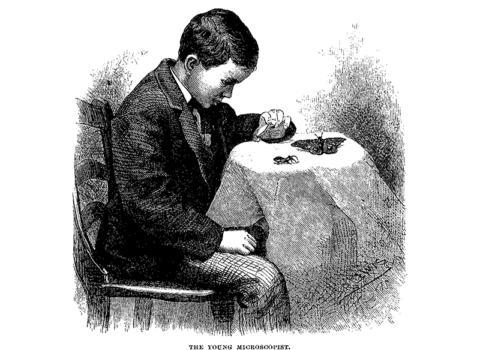Questions
On the windowsill of my office at Harper’s Magazine there is a framed photograph of an elderly man that was taken in December 2006. He is wearing a dark-gray jacket and glasses, and is smiling. He is holding a pen in his right hand and the English-language translation of his book La question (“The Question”) in his left. And I am also in the photograph, in the background of the image, proud to be there, sitting next to Henri Alleg, a journalist and the author of La question, one of the most famous political commentaries of the 1950s. It is an incendiary account of his torture at the hands of French soldiers during the war in Algeria because of his anticolonial and communist beliefs.
Alleg’s ordeal would probably not be famous if Jérôme Lindon, the intrepid owner of the book publishing house Éditions De Minuit, hadn’t published his work. Lindon was inspired by the founders of Éditions de Minuit, Pierre de Lescure and Jean Bruller-Vercors, a company they started under German occupation in 1942 by releasing Vercor’s Le silence de la mer (“The silence of the sea”), a Resistance novel. When Lindon released La question, in 1958, the book caused a sensation: 60,000 copies were sold in two weeks. But its success was too much for the French government, deeply embroiled in the war in Algeria, which resorted to censorship. Eventually, a military court ordered the seizure of the book, by then in its seventh reprint. In the land of the Enlightenment, fourteen years after the end of World War II and liberation from the Nazi-Vichy regime, a book describing a Gestapo-like interrogation of a French citizen by fellow citizens because of his beliefs was being suppressed by a “republican” government.
Of course, La question asks many questions, but there is really only one. The French army wanted to extract a variety of information from Alleg after the State closed the Alger républicain, of which he was director, causing him to go into hiding. Arrested by chance when he went to visit an already arrested political ally’s apartment that was under surveillance, the authorities wanted more information about where Alleg had been holed up and who were the people responsible for sheltering him—his collaborators—in order to penetrate the networks of the National Liberation Front in Algeria (FLN). Already badly hurt by electric shocks administered to the most sensitive parts of his body, Alleg recounts how he was interrogated again by one of his torturers: “I was writhing and screaming and I tensed up as they hurt me. [Lieutenant] Charbonnier, tape recorder in hand, continued to order electric shocks, relentlessly. All the while, he repeated a single question, emphasizing each syllable. ‘Where are you lodged?’”
This passage in La question forced me to question myself: Would I have been able to resist that kind of interrogation as Alleg did? Is freedom of the press worth risking the life or security of my family? Can you mix journalistic duty with fighting for a political cause? But the question that concerned me the most as a publisher was this: would La question have been published—would it have seen the light of day—without Jérôme Lindon’s moral fortitude? And even more to the point: could Lindon have released La question if he’d had to ask permission from a board of directors or a conglomerate? In short, if Lindon hadn’t been an independent publisher, would his hypothetical bosses have taken the legal, political, and personal risk of publishing Alleg’s account?
Beginning on January 1, 2022, the Lindon family publishing house, now independent, will belong to the Madrigall group, a conglomerate created by the Gallimard family, whose name, since 1919, has adorned many of France’s most prestigious literary works. I’m fairly certain that in 1958 Gallimard would have turned down Alleg’s book. Perhaps it is reassuring that Le Monde, this past June, reported that independent publisher Claire Paulhan believes that Gallimard’s takeover of Éditions de Minuit “doesn’t mean the death of Minuit, but rather a promise of loyalty toward the spirit of the publishing house.” Claire Paulhan is the granddaughter of the legendary literary critic Jean Paulhan, who was a member of the Resistance against German occupation, a secret ally of Éditions de Minuit, and an influential advisor to Gallimard. Paulhan was by no means a friend of the Algerian revolution, however. He did not, like François Mauriac and Jean-Paul Sartre, condemn the brutality of the French army. Quite the contrary. In 1960, Paulhan was one of 185 intellectuals to sign an appeal in Le Figaro denouncing, in part, those who criticized torture as a tactic. “To systematically slander and sully the army that is fighting for France in Algeria is to commit an act of treason.” Is this irony or simple hypocrisy? Le Monde recounted that “in the 1960s Jean Paulhan had tried to draw Minuit into Gallimard’s net.” Perhaps Henri Alleg had dissuaded Jérôme Lindon from accepting; perhaps Lindon worried about compromising his ethics as well as about losing his autonomy.
I admit that independence in and of itself does not guarantee good moral conduct. Nevertheless, my guiding lights in publishing and journalism are still independent, which is increasingly rare: Laurent Beccaria at Éditions des Arènes; Serge Halimi at Le Monde diplomatique, Dennis Johnson, of Melville House; and the editors, investors and friends of Le Devoir. Like me, they don’t have to ask permission from shareholders or bureaucrats. In this, we are all following the example of André Schiffrin, a great publisher known for standing up to conglomerates. In Words and Money, published in 2010, three years before his death, Schiffrin notes that “It’s high time politicians understand that plundering of our shared reserve of words is just as wrong as wasting our natural resources.” It’s high time the general public understood the same thing. I imagine that Jérôme Lindon would have agreed.



